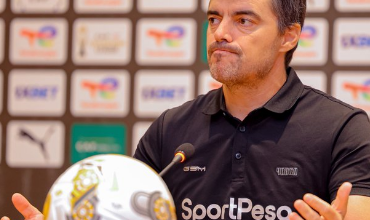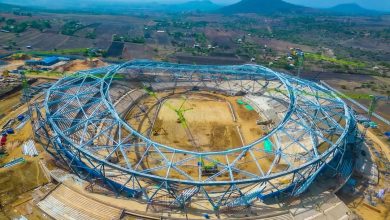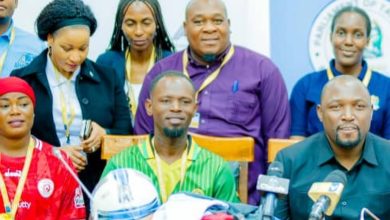Welcome to Republic of Wachambuzi: Where every Tanzanian is National Football Team coach

DAR ES SALAAM: If Tanzania ever needed a new republic, it wouldn’t need borders, flags or passports. It already exists, a nation within a nation; The Republic of Wachambuzi.
A proud, noisy, passionate people whose national anthem begins not with “Mungu ibariki Afrika” but with the sacred opening line, “First of all, I’m not an expert, but…”
These are Tanzania’s most beloved armchair football critics, who have turned the art of football commentary into a full-time profession and for many, a spiritual calling.
They are a unique species powered by endless passion, bottomless confidence and sometimes, questionable facts.
Armed with nothing but opinions and the energy of ten charging bulls, they can dissect every tendon, tactic and tragedy in Tanzanian football.
And when they’re done, they simply start all over again, refreshed like the morning tea.
In every corner of Dar es Salaam, from Buguruni to Mbagala, from Vingunguti to Magomeni, there’s always a group of Wachambuzi holding their own version of parliament.
You’ll find them on radio shows, at barber shops, in WhatsApp groups and at roadside cafés where an old TV hums through static, surviving by the grace of a shaky cable connection.
They speak with the authority of university professors, though many graduated from the prestigious YouTube University, majoring in “Advanced Premier League Watching” and minoring in “Post-Match Excuses.”
A visiting foreigner, sipping his soda in surprise, might wonder why, with so many football “experts” Tanzania still hasn’t won the World Cup.
That, my friend, is a dangerous question. Because as any Mzee wa Kahawa will quickly remind you, “The Tanzania Football Federation (TFF) never listens to us analysts!”
Yes, they truly believe that if the TFF would just take their wisdom seriously, by now Tanzania would be a continental football powerhouse, maybe even beating Brazil on a good day.
These self-appointed pundits can tell you who should be benched, who should be sacked and which referee’s eyesight needs immediate medical review.
They even know which fan section deserves to be upgraded to VIP.
And mind you, all this analysis is delivered with such fire and conviction that you begin to suspect they must have FIFA licences tucked away somewhere at home.
Recently, I tuned into one of those radio talk shows that could, in all honesty, be renamed “Soka Milele FM” — Football Forever FM.
The poor radio presenter started the programme with noble intentions, perhaps dreaming of discussing something different, maybe netball or athletics.
But fate and the Wachambuzi, had other plans. For four straight hours, the microphones were fully occupied by self-proclaimed tactical philosophers.
They shouted, laughed, interrupted each other, quoted statistics that probably originated on Facebook and argued over formations like real football coaches!
And just when you thought the conversation had finally reached its logical end, one of them would suddenly lean into the mic and declare, “But wait a moment, let me just add one more thing!”
That one more thing, of course, usually lasted another forty minutes.
When Argentine coach Miguel Ángel Gamondi was announced as the new Taifa Stars head coach, you’d have thought the nation had declared a coup.
The news spread faster than a rumour in a Daladala.
One analyst, adjusting his studio headphones with dramatic flair, asked, “Who exactly is Gamondi? Who picked him? Was it the Minister? Was it witchcraft? Or maybe divine intervention?”
Another commentator accused the TFF of everything short of national treason.
They spoke as though the coach’s appointment had single-handedly altered the course of Tanzanian history.
Meanwhile, nobody – not a single one of them, paused to mention the real problem: That Tanzanian football continues to struggle because of a shortage of qualified local coaches.
Most of our home-grown coaches, bless their dedicated souls, emerge from neighbourhood academies where tactical lessons are reduced to just two commands: “Run!” and “Shoot!”
The result is predictable. We produce players who can sprint like cheetahs but shoot like blind bats.
Yet the Wachambuzi will never blame the system. Oh no. They will blame the referee, the rain, the coach’s accent or even the presidential convoy for disrupting the team’s mental focus.
When Hemed Morocco was in charge, Taifa Stars began to dream. The man rebuilt the team from scratch, gave young players belief and for a moment, Tanzania dared to hope.
But in the Republic of Wachambuzi, gratitude has a shorter shelf life than Ugali wa jana.
Once Gamondi’s name appeared in the headlines, microphones crackled back to life across the country. “Gamondi is good,” said one analyst, “but can he survive the weather?” Another replied, “Weather?
What weather? He must first survive the Wachambuzi!”
And with that, they launched into a forensic examination of Gamondi’s entire career.
They recited his CV as if auditioning for a documentary voiceover; Wydad Casablanca, Platinum Stars, ASEC Mimosas.
Yet not one of them realised that coaching in Tanzania is not just about strategy, but diplomacy.
You don’t simply manage players; you manage fans, journalists, critics and a nation of one million selfproclaimed football professors who believe their opinions are gospel truth.
Many of these analysts, ironically, have never kicked a football beyond their own compounds.
Some couldn’t tell a high press from high blood pressure.
One of the most legendary figures among them, affectionately nicknamed Professor wa Tactics, is the classic example.
He is rumoured to have once won a beer bottle at a local bonanza’s penalty competition, his greatest sporting achievement to date.
But when he speaks on radio, you’d think he once coached Barcelona and mentored Guardiola himself.
Every time Tanzania loses, he bangs the table and roars, “We should have used the diamond midfield!” No one knows what he means. Not even him.
But everyone nods respectfully, as though he’s just decoded Einstein’s theory of football relativity.
And yet, we love them all the same. Because without them, Tanzanian football would be dull, like tea without sugar or nyama choma without pilipili kwa mbaaaaali…
They are the heartbeat of the game, the soundtrack of our Sundays and the endless echo of national passion.
They may be loud, they may be wrong, but they are gloriously ours.
Still, behind all the noise and laughter, there’s a hard truth peeking through the humour.
That is if only we could channel even half the energy, time and lung power of our Wachambuzi into real football development.
That is building better academies, training qualified coaches, nurturing young talent etc. Tanzania would stop talking about AFCON and think competing in it like true contenders.
We have raw talent. What we lack is structure. What we get instead are another four-hour radio sessions titled “What exactly is the problem?”
But that’s what makes our football beautifully Tanzanian; chaotic, emotional and deeply human.
It’s a drama of opinions, a carnival of noise and a religion of hope that refuses to die.
As for Coach Gamondi, may the football gods bless his tactics, his patience and his blood pressure.
Because in Tanzania, every match begins on the pitch but ends on the radio.
Win, and the Wachambuzi will proudly claim, “Tulimshauri sisi” — “We advised him.”
Lose and they’ll chase him all the way back to Buenos Aires by microphone.
It’s a tough job, but someone’s got to do it.
In a nutshell, Miguel Ángel Gamondi, born in Olavarría, Argentina in 1963, is no stranger to African football’s unpredictable dance.
ALSO READ: Coach Gamondi confident in Taifa Stars’ potential
After a modest playing career at Ferro Carril Sud, he carved out a coaching path across Libya, Morocco, South Africa and beyond before finally finding himself in Tanzania’s fiery football theatre.
His Yanga stint brought trophies and acclaim before ending abruptly, a reminder of how thin the line between glory and goodbye can be.
Now, as Singida’s tactician and Taifa Stars’ interim boss for AFCON 2025, Gamondi faces a familiar test: Moulding passion into performance.
If he marries tactical discipline with Tanzanian flair, he could script another football fairy tale.
If not, the Wachambuzi chorus will write it for him.
And so, the commentary continues day after day, match after match, in this endless republic of words and whistles.
Welcome, dear reader, to The Republic of Wachambuzi, where the analysis never ends, every opinion is slightly offside, but always, gloriously, on air.





